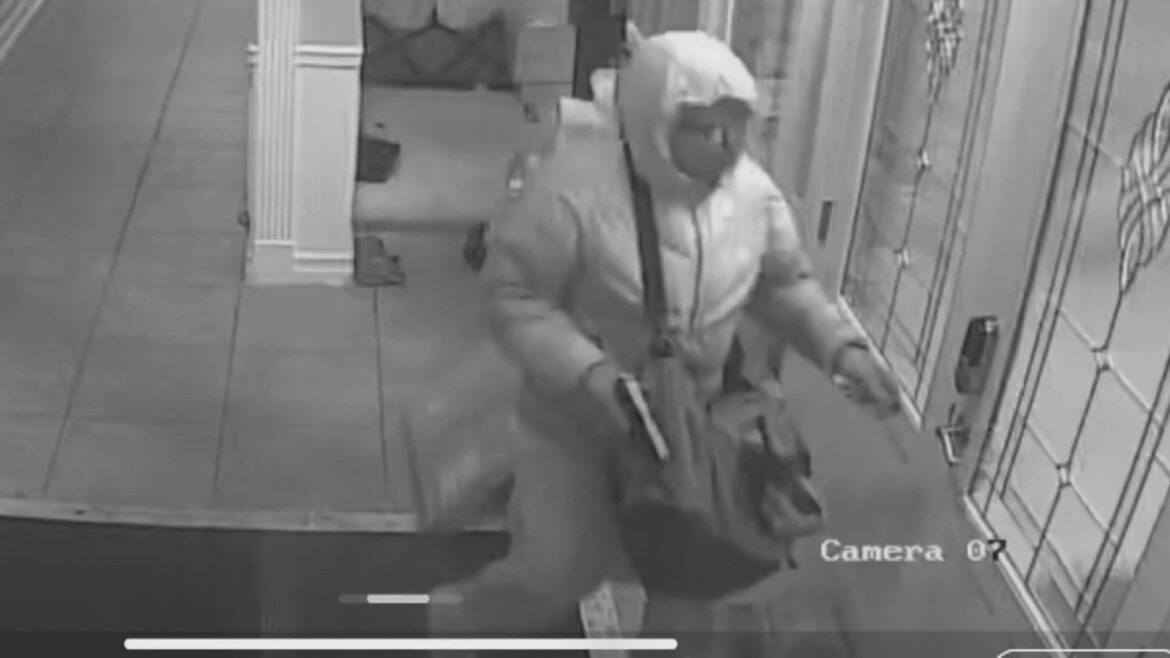In a candid revelation that has captured the attention of fans and the public alike, Seattle Mariners outfielder Julio Rodriguez opened up about a chilling experience he faced at his home earlier this year. In an exclusive interview with The Seattle Times, Rodriguez detailed the emotional toll of a home invasion incident that left him shaken yet determined. “I’m not going to lie … it was hard,” he confessed, providing insight into not only the physical but also the psychological impact of such a violation of personal space. As one of Major League Baseball’s rising stars, Rodriguez’s journey is not just about his performance on the field; it also underscores the real-life challenges that athletes can encounter off the field. In this article, we explore Rodriguez’s perspective on the event, the implications for his career, and how he is navigating the aftermath.
Julio Rodriguez Opens Up About the Emotional Aftermath of His Home Invasion
In a candid interview, Julio Rodriguez candidly discussed the profound emotional impact he experienced following the traumatic event. The Seattle Mariners star has always been known for his resilience on the field, but the recent home invasion has tested his mental fortitude in ways he never anticipated. Reflecting on the incident, he admitted, “I’m not going to lie … it was hard.” Many would expect athletes to be unaffected by personal turmoil; however, Rodriguez opened up about feeling vulnerable and the struggle to regain his sense of security.
To regain his composure, Rodriguez turned to his support system, emphasizing the importance of family and friends during such unsettling times. He noted that sharing his experiences helped him process the emotions surrounding the invasion, and he highlighted the following aspects of his healing journey:
- Therapy Sessions: Regular meetings with a therapist to navigate his feelings.
- Community Support: Leaning on teammates and fans for encouragement.
- Personal Reflection: Taking time to meditate and reflect on his experiences.
Rodriguez’s openness serves as a reminder that even stars in the limelight face their own battles, shedding light on the often-overlooked emotional aftermath of traumatic experiences.
- Advertisement -
Insights into the Impact of Crime on Athletes and Their Communities
The recent home invasion experienced by MLB star Julio Rodriguez sheds light on the unsettling reality that athletes can face when their personal lives are disrupted by crime. This incident not only challenged Rodriguez personally but also highlighted broader implications for safety within the sporting community. Athletes often serve as role models and representatives of their communities, yet they can feel vulnerable to the same societal issues that affect their fans. This dichotomy raises important questions about the pressures they endure both on and off the field, especially when their sense of security is compromised.
Moreover, the impact of such incidents extends beyond the individual athlete. Communities can feel a wave of anxiety when high-profile figures are victimized, leading to heightened concerns about safety. The psychological toll is palpable not just for athletes but also for their supporters. Several key aspects emerge from this scenario:
- Community Trust: When crime disrupts the lives of prominent figures, it can erode the sense of security within a community.
- Awareness and Advocacy: Athletes often become advocates for change, using their platforms to promote community safety and crime prevention.
- Support Systems: The incident underscores the need for robust support mechanisms for athletes coping with traumatic experiences.
To further illustrate the ramifications of crime on sport and connected communities, consider the following table:
| Aspect | Impact on Athletes | Impact on Communities |
|---|---|---|
| Security | Increased anxiety and insecurity | Loss of community trust |
| Public Image | Concern over media portrayal | Heightened vulnerability perception |
| Engagement | Promotion of community safety initiatives | Encouragement of local support programs |
Strategies for Enhancing Security and Preventing Home Invasions
Home invasions can leave lasting trauma, making it essential for homeowners to prioritize security. One of the most effective strategies is to invest in high-quality locks and deadbolts. Consider upgrading to smart locks that provide keyless entry and remote monitoring capabilities. Additionally, enhancing outdoor lighting can deter potential intruders. Employing motion-sensor lights around the perimeter of the home not only increases visibility but also provides an element of unpredictability for would-be thieves.
Another crucial approach is fostering a community-oriented environment. Neighbors looking out for one another can significantly reduce the likelihood of home invasions. Participating in or starting a neighborhood watch program promotes vigilance, and using apps designed for neighborhood communication can further enhance community awareness. Lastly, keeping an emergency contact list readily available, including local law enforcement and nearby neighbors, can expedite responses during a crisis. This proactive approach to home security can empower residents and create a safer living space for everyone.
Key Takeaways
In conclusion, Julio Rodriguez’s candid reflections on his recent home invasion shed light on the personal challenges faced by public figures in the wake of traumatic events. His admission, “I’m not going to lie … it was hard,” resonates with many who have experienced similar violations of safety and privacy. As Rodriguez navigates the complexities of recovery, both mentally and emotionally, his story serves as a reminder of the resilience required to overcome such adversities. The increased focus on security measures and the psychological impacts of crime further highlight the urgency of addressing community safety. As both fans and citizens remain supportive, the hope is to foster a greater dialogue around the need for comprehensive solutions that reinforce not only physical safety but also emotional well-being in the wake of violence.
- Advertisement -


